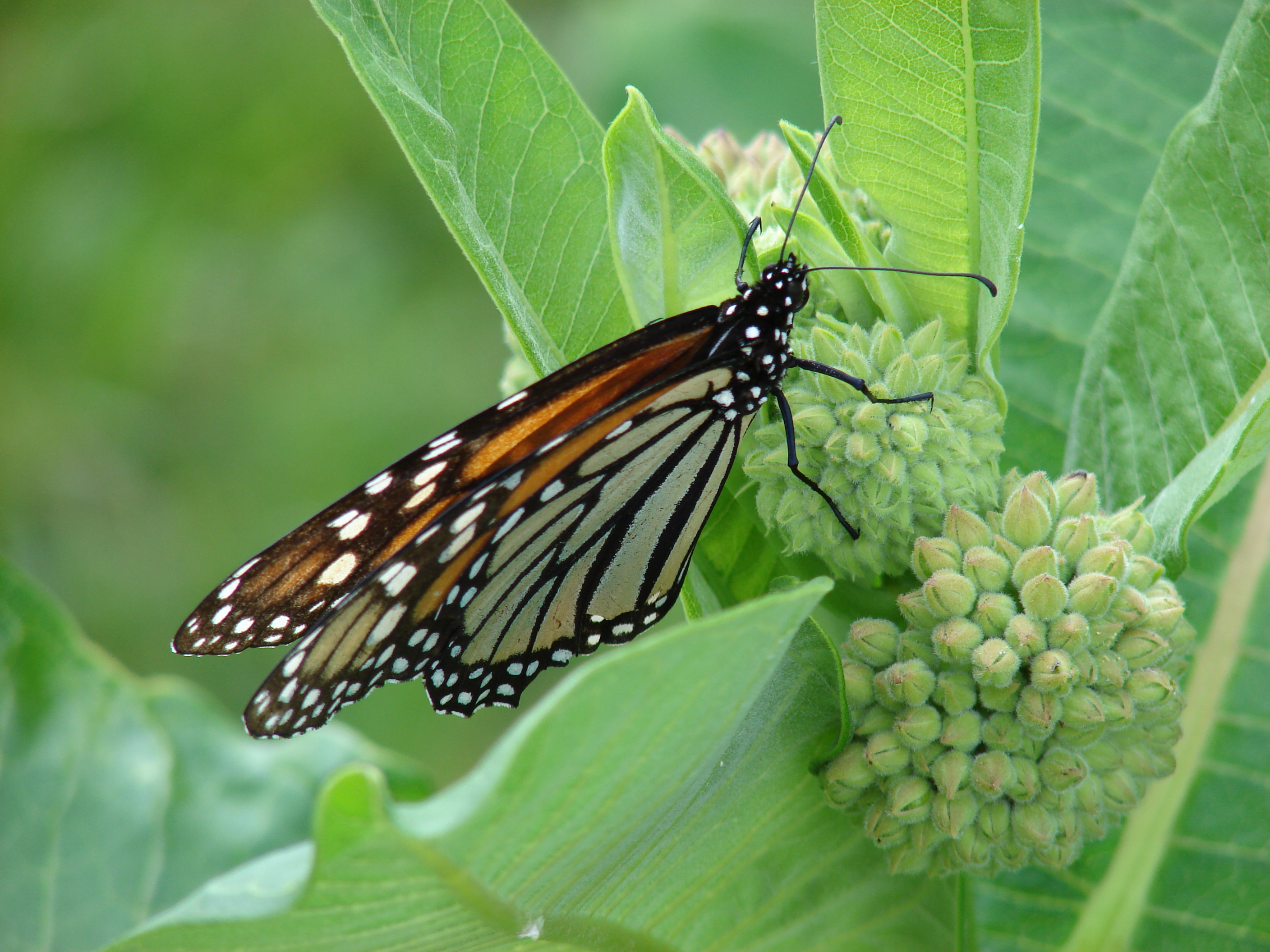 Monarch butterflies cannot survive the cold winters, so each fall, Monarchs east of the Rocky Mountains migrate to forests in the mountains of Mexico. A migration route of up to 3,000 miles completed at the rate of about 25-30 miles per day. The Monarchs are the only butterflies
to make such a long migration every year. It is a mystery as to how the Monarch find the overwintering sites each year. Somehow they know their way, even though the butterflies returning to Mexico each fall are the great-great grandchildren of the butterflies that left Mexico the previous spring. No one knows how their homing systems works, it is another unanswered
question in the Monarch’s world.
Monarch butterflies cannot survive the cold winters, so each fall, Monarchs east of the Rocky Mountains migrate to forests in the mountains of Mexico. A migration route of up to 3,000 miles completed at the rate of about 25-30 miles per day. The Monarchs are the only butterflies
to make such a long migration every year. It is a mystery as to how the Monarch find the overwintering sites each year. Somehow they know their way, even though the butterflies returning to Mexico each fall are the great-great grandchildren of the butterflies that left Mexico the previous spring. No one knows how their homing systems works, it is another unanswered
question in the Monarch’s world.
When the late summer and early fall Monarchs emerge from their pupae, or chrysalides, they are biologically and behaviorally different from those emerging in the summer. Though the Monarch’s normal life span is approximatly 2-5 weeks the fall Monarch will survive for 8 to 9 months.

Why do the Manarchs need our help?
The Monarch will only lay their eggs on milkweed plants and milkweeds are declining due to development and the widespread use of herbicides in lawns, croplands, pastures and roadsides.
The planting of crops genetically modified to resist herbicides containing glyphosate allows growers to spray their fields instead of tilling to control weeds. Milkweeds can survive tilling, but not the repeated use of glyphosate.
The use of herbicides and frequent mowing along roadsides has converted much of this habitat to grasslands - a habitat generally lacking in food and shelter for wildlife. Although some states have started to increase the diversity of plantings along roadsides, including milkweeds, these programs are small.
To offset the loss of milkweeds and nectar sources we need to create, conserve, and protect milkweed/monarch habitats. You can help monarchs by creating monarch habitats in home gardens, at schools, businesses, parks, zoos, nature centers, along roadsides, and on other unused plots of land. Without a major effort to restore milkweeds to as many locations as possible,
the monarch population is certain to continue to decline.
To learn details about the Monarch and how to help them survive visit Monarch Watch
The Frederick County Master Gardeners would like to invite everyone to visit the Frederick County Master Gardeners Demonstration Gardens located at 330 Monteview Lane in Frederick, a Certified Monarch Waystation, to enjoy the gardens and view the plantings.
The gardens contain; Native Hedge Row, Native Plant Garden, Childrens Flower Garden and Vegetable Gardens. There are shaded paths with benches along the way to stop and enjoy the surroundings or just read a book. The gardens are open to the public seven days a week for self guided tours.
Read other articles on ecological gardening & native plants
Read other articles on birds, wildlife & beneficial insects
Read other articles by Ronald Dudley